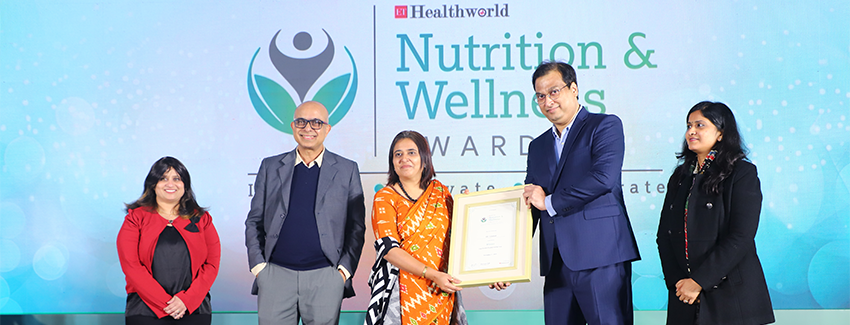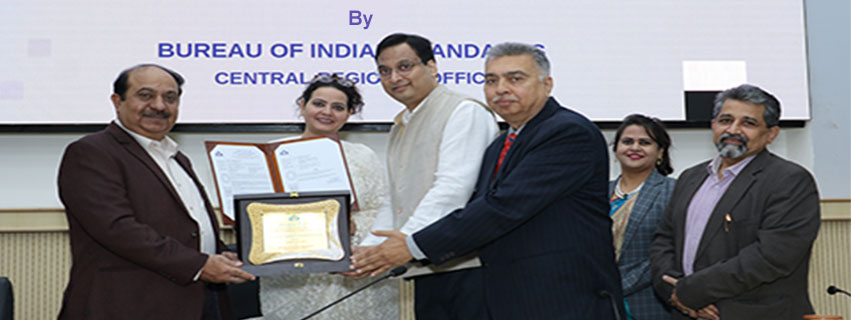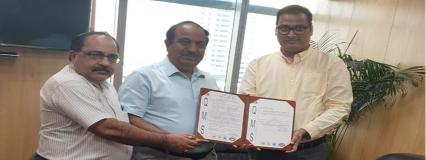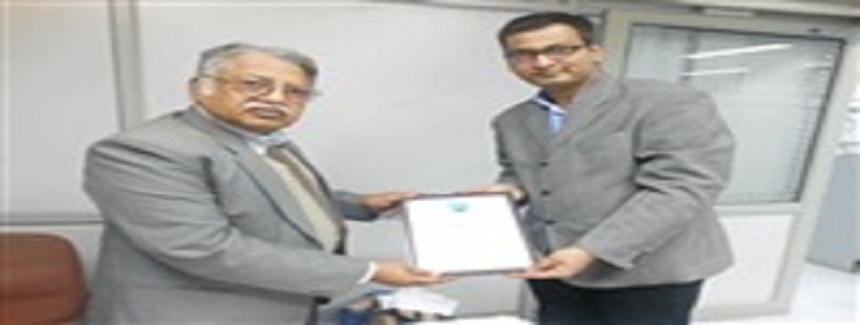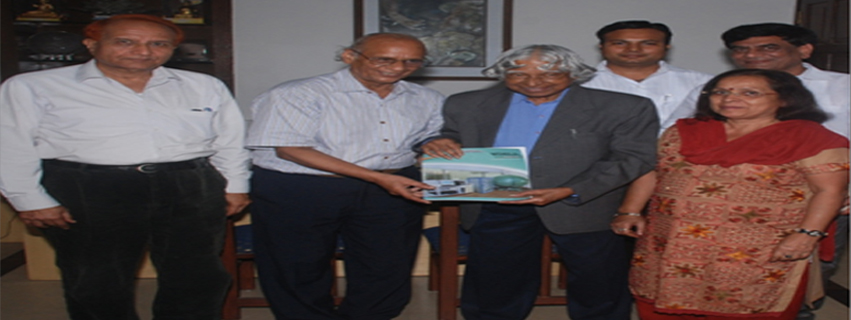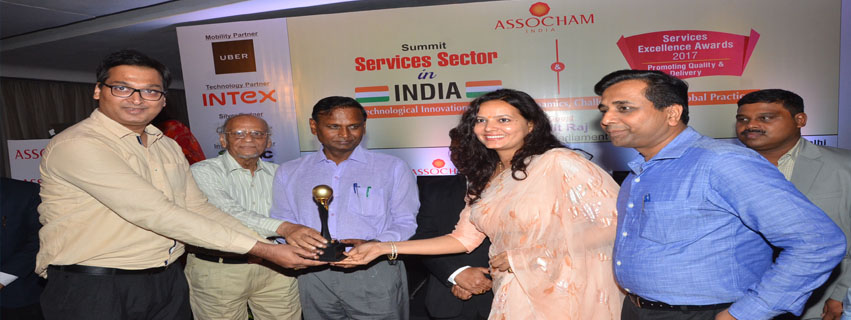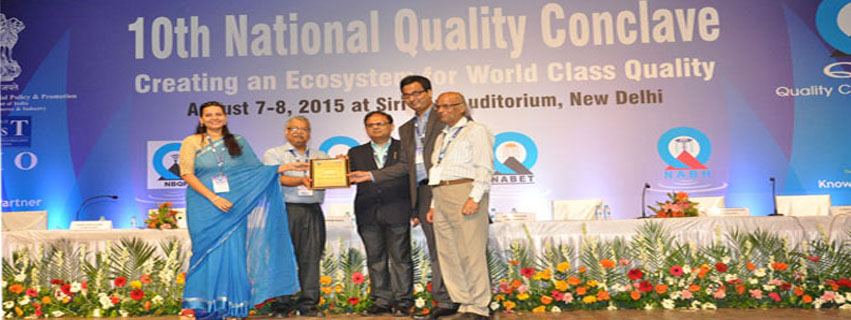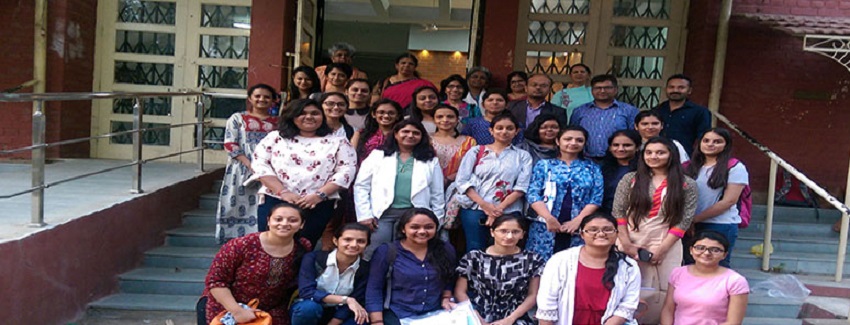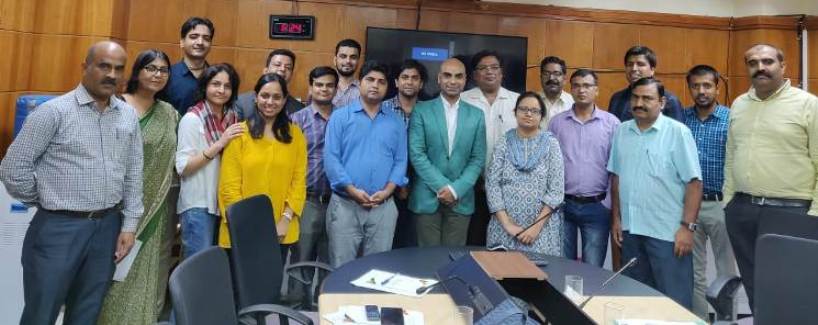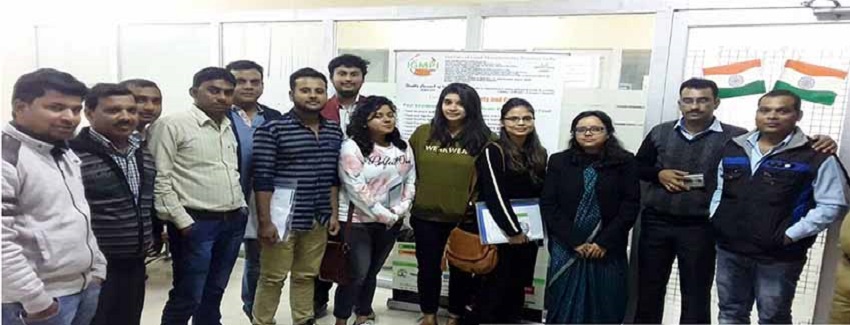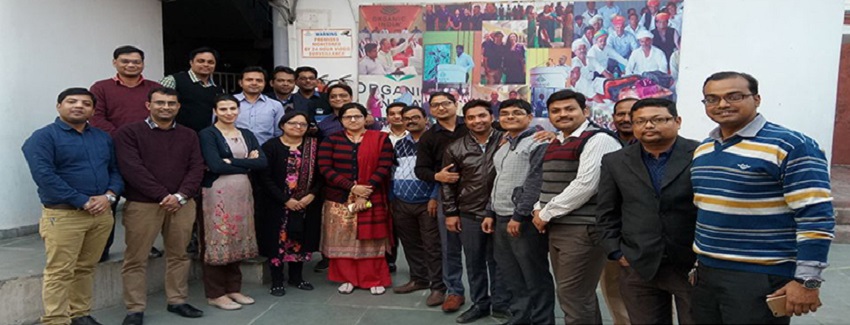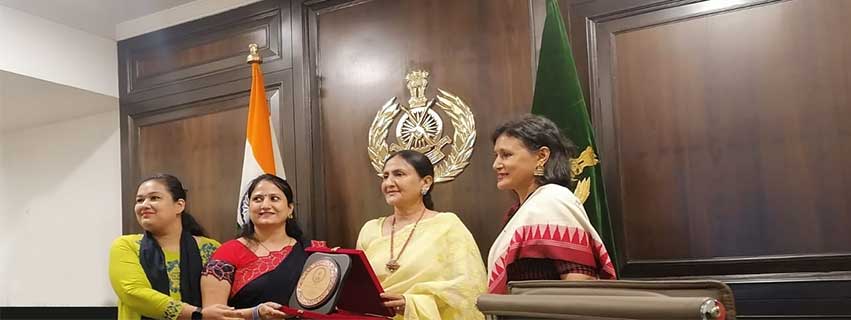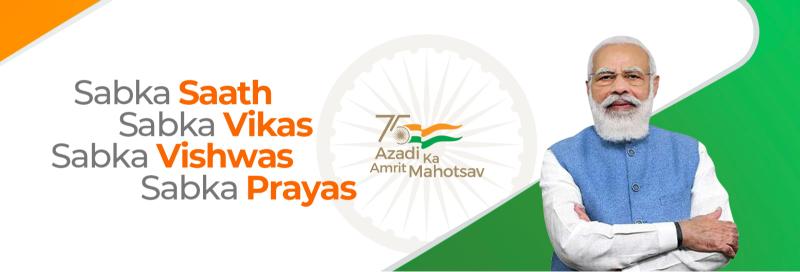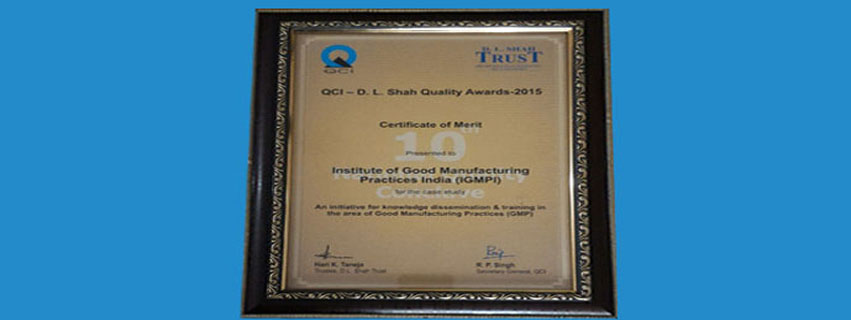(An Autonomous Body Recognized by Ministry of Commerce & Industry, Government of India)
Competency based placement focussed Education | Training | Research | Consultancy
Post Graduate & Executive Diploma in Disaster Management (PGDDM/EDDM)
The frequency of natural and man-made disasters in the current landscape has amplified climate change globally. The importance of resilience-building and disaster preparedness efforts is underscored by the increasing unpredictability and intensity of disasters, emphasizing the need for proactive measures to mitigate risks and minimize their consequences on communities and infrastructure. The presence of an organised workforce personnel is crucial to tackle to impending global challenge that is climate change. IGMPI has launched a PG diploma/ Executive Diploma course in Disaster Management for the benefit of experienced professionals and newcomers in this industrial sector. The core element of this training and professional development course is operations management in high risk environmental situations.
A focus on disaster management will train the student for emergency planning and preparedness necessary for the current Indian scenario. A set of relevant case studies will be presented for the benefit of the student and solved in a live interactive class environment. Students will get equipped with communication techniques for real time monitoring and status updates that is indispensable for disaster management.
Programme Structure
Module 1: Emergency Response and Planning
- Sheltering Arrangementsr
- Transportation
- Financial Capacity
- Stabilisation of the dangerous condition
- Recovery
Module 2: Disaster Preparedness
- Emergency Food Supply
- Emergency Water Supply
- Mitigation, Preparedness, Response and Recovery
- Critical business functions and alternate locations
Module 3: Management of Crowds At Large Congregations
- Triggers in Crowd Management
- Crisis Management
- Institutional Disaster Management
- Challenges in Crowd Management
Module 4: Towards Green Growth and Resilience Development
- Green energy, green business and green skills
- Circular Economy and Resource Efficiency
- Green Finance: Tools and Mechanisms
- Industrial Ecology: Potentials and Benefits
- Urban Green Growth
- Nature based Solutions
Module 5: Public Health Emergency and Disaster Management
- Public Health Emergency
- International and National Management Frameworks
- WHO Framework and Updates from India
- Risk Assessment
- Emergency Risk Communication
Module 6: Risk Mitigation – Extreme Events Risk Reduction
- Pathways for mainstreaming disaster risk reduction
- Resilient Infrastructure and business continuity
- Climate Disaster Development Nexus
- Urban and Peri-Urban dynamics
Module 7: Disaster Management Communication
- Early Warning Systems
- Public Mobile Radio Network
- Cyclone resilient mobile towers
- WiMAX Technology
- Multi-Task Riverine Ship for Disaster
Module 8: Disaster Resilient Agricultural Management
- Sustainable Agriculture and role of disaster resilience
- Ecosystem based adaptation
- Cash Crops and Food Crops
- Agriculture insurance and credit loans
- Community Action
Module 9: Peri-Urban Ecosystem and Urban Resilience
- Urban and per-urban water, temperature, winds and health risks
- Green infrastructure and water-food-energy nexus
- Understanding peri-urban settings and ecosystems
- Policy, laws and programmes
- Land-use, master planning and participatory strategies
Module 10: Landslide Risk Management
- Multi-tier/multi-rotational landslides
- Potential Landslide Risk Indicators
- Impact on Essential Services like Power, Communication, Water Supply
- Landslide warning signs
- Structural Measures and techniques to reduce landslide hazards
Module 11: Disaster Resilience in States and UTC in India
- Six Phases of Disaster Management Cycle
- New Paradigm
- Vulnerability Assessment
- Disaster Management Authorities - Administration
- Operational and Financial Arrangements
- Pilot District Program
Module 12: Post Disaster Needs Assessment
- Conceptual Framework
- Sector Guidelines for Estimating Damages and Losses in Undertaking PDNA
- Impact Assessment
- Estimation of post-disaster recovery and reconstruction needs
Module 13: Industrial Disaster Management
- Industrial and Chemical Disasters
- Legal Framework for Chemical Disaster management
- Risk Sensitive Land Use Planning for Chemical Disaster
- Disaster Management in Coal Mines
Module 14: Gender and Disaster Management
- Brainstorming on individual thoughts and perceptions
- Differential Impact of Disasters on Women and Men
- Gender Based Violence in Disasters
- Gender and Relief Management
- Gender and Livelihood Generation
Module 15: Roles and Responsibilities In Incident Response System
- Demobilisation and operations
- Incident Cost Tracking
- Strategy and Planning
- Risk Assessment and Safety Management
- Responsible Official and Incident Commander Responsibilities
- Command Structures
Module 16: Capstone Project
Eligibility
Graduates in any discipline are eligible for our Post Graduate Diploma, Executive Diploma and Professional Certification Programmes.
Programme Duration
The minimum duration to complete the PG diploma programme is 12 months and maximum is 24 months. The minimum duration to complete the executive diploma programme is 6 months and maximum is 12 months.
Programme Mode
Registrations are currently open for regular and Part-time (Online Live Classes) both modes.
Programme Deliverables
A comprehensive study material for all the modules in hard copies ensuring the needs of the audience. The accompanying training material is appropriately aligned with the current Industry’s expectations.
- Assignments for all the programme modules for continuous evaluation and guidance.
- Interactive or online live sessions on all key areas of the programme giving all flexibility to the participants.
- Online Live Classes/Part-time for all the modules will be conducted on the weekends. Moreover, a doubt clearing session will also be scheduled before the examination.
- All the efforts are made by IGMPI faculty members to make the entire programme modules easily understandable.
- Assessment and evaluation for all the programme modules in order to enhance the levels of competencies and skills of the participants leading towards the objective of application in the job.
- At the end of each programme modules, the trainers shall obtain feedback from the participants using specially designed questionnaires.
- All learning and training delivery initiatives shall be conducted in English.
Examination & Certification
All the participants are obliged to timely submit completed assessment assignments (during the programme, usually after every module) and appear for an online proctored exam at the end of the programme. After successful completion, the participants will be awarded Post Graduate Diploma/ Executive Diploma in Disaster Management by Centre for Environmental Health and Safety, IGMPI. For all the above mentioned modules elaborate programme material, self-assessment assignments and project work details would be provided by the Institute from time to time. Details get updated on the webpage as well.
Discipline in Classes and Examination
Every student is required to observe a disciplined behaviour during her/his classes, assessments & examinations and to follow instructions from the Professors. Any act of indiscipline may result into discredit & it will be mentioned in her/his academic report.
Placement Assistance & Corporate Relations
The Institute has partnered with many organizations for providing with placement assistance to its participants. Besides, it has a robust placement cell comprised of senior level Human Resources professionals and Talent Acquisition experts which maintains close links with business and industry. This cell is continuously engaged in promoting the employability of our participants and encouraging the concerned Human Resource department and Hiring Managers to recruit/hire our participants for their vacant positions. The efforts of our placement cell also include helping with professional resume writing and interview skills.
In recent months, the Institute has witnessed more and more participation from professionals working with global companies like the PwC, KPMG, EY, Delloitte, SABIC, PepsiCo, Reliance, UN, IBM, Dell Technologies and Hewlett Packard enterprises etc. The IGMPI actively recommends our students and training participants for various job requirements and specialized roles to Human Resource, Talent Acquisition as well as the heads of various departments in the industrial sector on a regular basis.
Future career prospects
In this course, participants will be able to learn and understand and evaluate critical issues in disaster management that are driving changes in effective global governance. They will also be able to assess the implications for businesses and major public and private entities, and make key decisions for conservation and preservation of local ecosystems. Disaster Management courses offer a plethora of opportunities. According to the reports, 24 million green jobs will be available around the world by 2030. After pursuing disaster management courses, the candidate can work in various fields like the climate monitoring think tank task forces, disaster management, public health and safety, rural management, jobs in state ecological departments and early warning systems management companies.
Programme Fee Details
Programme fee details will appear here.
Last date for submitting completed Application Form: 3rd Feb 2026.
For further enquiries, call or write to us on:
18001031071
(Toll Free -9:00 am to 5:30 pm IST-except on Central Government holidays)/
info@igmpi.ac.in
NEWSLETTER
Other Programmes
- Business Sustainability (PGDBS/EDBS)
- Remote Sensing and Geographic Information System (PGDRSGIS/EDRSGIS)
- Power Management (PGDPM/EDPM)
- Oil & Gas Technology and Management (PGDOGTM/EDOGTM)
- Petroleum Technology and Management (PGDPTM/EDPTM)
- Green Technologies (PGDGT/EDGT)
- Fire Technology & Industrial Safety Management (PGDFTISM/EDFTISM)
- Water Resource Technology and Management (PGDWRTM/EDWRTM)
- Urban Planning (PGDUP/EDUP)
- Public Policy and Sustainable Development (PGDPPSD/EDPPSD)
- Natural Resource and Biodiversity Management (PGDNRBM/EDNRBM)
- Corporate Affairs Management (PGDCAM/EDCAM)
- Business and Human Rights (PGDBHR/EDBHR)
- Geoinformatics (PGDGI/EDGI)
- Climate Change Technology (PGDCCT/EDCCT)
- Environmental Law and Policy (PGDELP/EDELP)
- Environmental Social & Governance (PGDESG/EDESG)
- Waste Management (PGDWM/EDWM)
- Sustainable Agriculture (PGDSA/EDSA)
- Sustainable Development (PGDSD/EDSD)
- Environmental Studies and Resources Management (PGDESRM/EDESRM)
- Industrial Safety Management (PGDISM/EDISM)
- Renewable Energy Management (PGDREM/EDREM)
- Corporate Social Responsibility and Sustainable Management (PGDCSRSM/EDCSRSM)
- Environmental Health and Safety (PGDEHS/EDEHS)
- Industrial Hygiene (PGDIH/EDIH)

